Firefox Club, RVCE
Friday, 23 January 2015
Friday, 16 January 2015
Bugzilla, a bug-tracking system by Mozilla
What is Bugzilla?
Bugzilla, originally written by Terry Weissman in 1998 for the nascent Mozilla.org project, is a "Defect Tracking System" or "Bug-Tracking System". Defect Tracking Systems allow individual or groups of developers to keep track of outstanding bugs in their product effectively. Most commercial defect-tracking software vendors charge enormous licensing fees. Despite being "free", Bugzilla has many features its expensive counterparts lack. Consequently, Bugzilla has quickly become a favorite of thousands of organizations across the globe.
What Does Bugzilla Do?
- Track bugs and code changes
- Communicate with teammates
- Submit and review patches
- Manage quality assurance (QA)
Bugzilla can help you get a handle on the software development process. Successful projects often are the result of successful organization and communication. Bugzilla is a powerful tool that will help your team get organized and communicate effectively.
Bugzilla is...
- Under active development
- Constantly being put to the test by the Mozilla Foundation
- Supported by a dedicated team
- Has countless features that most expensive solutions lack
- Trusted by world leaders in technology
- Can be installed on many operating systems, including Windows, Mac and Linux
Why Should One Use Bugzilla?
Many companies are finding that Bugzilla helps reduce downtime, increase productivity, raise customer satisfaction, and improve communication. Bugzilla can also help reduce costs by providing IT support accountability, telephone support knowledge bases, and by keeping tabs on unusual system or software issues. Bugzilla can do the same for your organization, regardless of its size.
Possible Uses
- Systems administration
- Deployment management
- Chip design and development problem tracking (both pre-and-post fabrication)
- Software and hardware bug tracking
- IT support queues
Some More Fun Facts about Firefox..........

1. Firefox is open source and is the only browser made by a not-for-profit, mission-driven organisation.
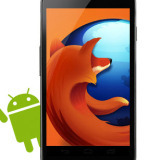
2. Firefox is available not only for Windows, Mac and Linux-based desktops, but on Android phones and tablets, too. In fact, Firefox for Android has been downloaded from the Google Play Store more than 80 million times.
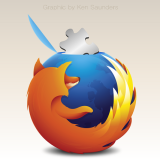
3. Firefox was the first browser to offer themes an add-on platform to add new features, functionality or a customised look to your browser. Nearly 4 billion add-ons have been downloaded since we made add-ons available.
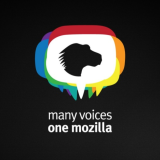
4. A global community of volunteer contributors translate Firefox into nearly 90 languages for the 50% of non-English language version users. The Access Firefox team makes the latest version of Firefox accessible to users with visual and motor impairments.
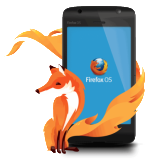
5. Firefox launched the only truly open mobile operating system for smartphones. Firefox OS-based smartphones are now available in 24 countries across Asia, Europe and Latin America.

6. Firefox Developer Edition is the first browser designed specifically for developers.
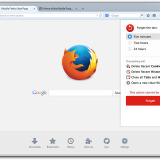
7. Firefox is dedicated to protecting online privacy and providing users with control. It includes tools to help protect your privacy like Private Browsing, Guest Browsing and Do Not Track as well as new privacy features we’ve introduced like the Forget button.

8. Firefox was first to bring 3D in-browser gaming to life on desktop and mobile by pioneering technologies like WebGL, now adopted by all major browsers.

9. A lizard is at the heart of Firefox. Gecko is a Web engine used by around a quarter of the Web, which has brought new capabilities to the Web and increased interoperability dramatically.
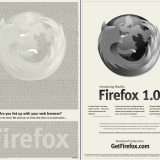
10. More than 10,000 contributors expressed their support for our mission by paying for a full-page ad in The New York Times to celebrate the launch of Firefox 1.0 in 2004.
Looking back. Looking ahead.
- 01The Mozilla Project launched at Netscape on March 31, 1998, to offer choice to users and drive innovation on the Web.
- 02Proudly non-profit, Mozilla makes products like Firefox with a mission to keep the power of the Web in the hands of users everywhere.
- 03More than 10,000 contributors expressed their support for our mission by paying for a full-page ad in The New York Times on the day Firefox 1.0 launched in 2004.
- 04Today Mozilla has contributors on every continent, including Antarctica (where Firefox is used by 80% of people).
- 05Firefox Add-Ons allow you to customize and take control of your Web experience. Nearly 4 billion of them have been downloaded by users so far.
- 06Mozilla is leading the way in online privacy with browser innovations like Do Not Track and Lightbeam that give users greater control of their personal data.
- 07Our global community has helped translate Firefox into over 70 languages, making the browser available to more than 90% of the world's population.
- 08In 2008, 8,002,530 people chose Firefox in a single day to set a Guinness World Record for “Most Downloads of a Software Application in 24 Hours.”
- 09The Mozilla Festival is our largest annual event, bringing together hundreds of creative minds to realize the full power and potential of the Web.
- 10Mozilla Webmaker works to create a more Web-literate planet, providing tools and projects to help people take greater control of their online lives.
- 11Firefox for Android brings the Firefox desktop browsing experience to phones and tablets. Available on Google Play, it has been downloaded more than 80 million times.
- 12The Mozilla Developer Network is a community-driven Web resource that provides the best documentation, tutorials and tools available to more than 2 million visitors each month.
- 13Mozilla works to care for and preserve the Web as a shared public resource for the benefit of everyone.
- 14In 2013, Mozilla launched Firefox OS to unleash the full power of the Web on smartphones and once again offer control and choice to a new generation of people coming online.
- 15The work Mozilla does is made possible thanks to tens of thousands of volunteers who believe the Web should remain open and accessible to all.
Firefox 35.0 is here and packs a punch!
Our favourite browser is here with a new update, Firefox version 35.0. Released on 13nth January 2015 its latest improvement is that it can now share mobile device Wi-Fi and cellular signals for improved geolocation services and to help support context-aware applications.

Mozilla has also implemented HTTP Public Key Pinning Extensions for enhanced authentication of encrypted connections in the new version of the browser.
Public Key Pinning was introduced in Firefox 32 on the desktop and in Firefox 34 for Android. The security feature links specific domains and services to Certificate Authorities (CAs) so that they are used instead of authorities that are not mentioned.
The Public Key Pinning Extension provides site owners to do the same on their end. It allows them to list acceptable Certificate Authorities that browsers should use during connection to reduce the impact of compromised Certificate Authorities.
Among the HTML5 support features that Mozilla has added to the browser is support for the CSS front-loading API, the implementation of resource timing API, and the default enabling of CSS filters.
For desktop, version 35.0 uses tiled rendering on OS X, built-in support for H264 (MP4) on Mac OS X Snow Leopard (10.6) and newer, through native, APIs, and Firefox Hello with a new rooms-based conversations model.
Firefox Hello lets you make free video and voice calls directly from the browser. All you need are a microphone, a webcam (optional), and the latest version of Firefox to call friends who are on WebRTC-supported browsers like Firefox, Chrome, or Opera.
The latest version sees a few fixes, including reduced resource usage for scaled images and a number of security fixes.
If you are using Firefox for Android while downloading the update you will notice that the browser requests permissions to access Wi-Fi connection information which it did not require before. The permissions are used to improve the browser's location-based service according to Mozilla.
Mozilla has also added search dialogue to network error pages to the mobile browser, included the use of Android Download manager to keep track of downloaded files, and offered the ability for some devices to view search activity by swiping up or from the search widget.
Along with improved geolocation functionality, the mobile browser also sees Bing now using HTTPS for secure searching.
Overall many changes being done and we cant wait for the next update that is version 36.0 which is expected to be released on February 24rth.

Mozilla has also implemented HTTP Public Key Pinning Extensions for enhanced authentication of encrypted connections in the new version of the browser.
Public Key Pinning was introduced in Firefox 32 on the desktop and in Firefox 34 for Android. The security feature links specific domains and services to Certificate Authorities (CAs) so that they are used instead of authorities that are not mentioned.
The Public Key Pinning Extension provides site owners to do the same on their end. It allows them to list acceptable Certificate Authorities that browsers should use during connection to reduce the impact of compromised Certificate Authorities.
Among the HTML5 support features that Mozilla has added to the browser is support for the CSS front-loading API, the implementation of resource timing API, and the default enabling of CSS filters.
For desktop, version 35.0 uses tiled rendering on OS X, built-in support for H264 (MP4) on Mac OS X Snow Leopard (10.6) and newer, through native, APIs, and Firefox Hello with a new rooms-based conversations model.
Firefox Hello lets you make free video and voice calls directly from the browser. All you need are a microphone, a webcam (optional), and the latest version of Firefox to call friends who are on WebRTC-supported browsers like Firefox, Chrome, or Opera.
The latest version sees a few fixes, including reduced resource usage for scaled images and a number of security fixes.
If you are using Firefox for Android while downloading the update you will notice that the browser requests permissions to access Wi-Fi connection information which it did not require before. The permissions are used to improve the browser's location-based service according to Mozilla.
Mozilla has also added search dialogue to network error pages to the mobile browser, included the use of Android Download manager to keep track of downloaded files, and offered the ability for some devices to view search activity by swiping up or from the search widget.
Along with improved geolocation functionality, the mobile browser also sees Bing now using HTTPS for secure searching.
Overall many changes being done and we cant wait for the next update that is version 36.0 which is expected to be released on February 24rth.
Thursday, 1 January 2015
About Mozilla Foundation..
Mozilla
is a free software community best known for producing the Firefox
web browser. The Mozilla community uses, develops, spreads and supports
Mozilla products, thereby promoting exclusively free software and open
standards, with only minor exceptions. The community is supported
institutionally by the Mozilla Foundation and its tax-paying subsidiary,
the Mozilla Corporation.
In
addition to the Firefox browser, Mozilla also produces Thunderbird,
Firefox Mobile, the Firefox OS mobile operating system, the bug tracking
system Bugzilla and a number of other projects.
On February 23, 1998, Netscape Communications Corporation created a project called Mozilla
(after the original code name of the Netscape Navigator browser which
is a blending of "Mosaic and Godzilla") to co-ordinate the development
of the Mozilla Application Suite, the open source version of Netscape's
internet software, Netscape Communicator. Jamie Zawinski says he came up
with the name "Mozilla" at a Netscape staff meeting.A small group of
Netscape employees were tasked with coordination of the new community.
Originally,
Mozilla aimed to be a technology provider for companies,
such as Netscape, who would commercialize their open source code.When
AOL (Netscape's parent company) greatly reduced its involvement with
Mozilla in July 2003, the Mozilla Foundation was designated the legal
steward of the project.Soon after, Mozilla deprecated the Mozilla Suite
in favour of creating
independent applications for each function, primarily the Firefox web
browser and the Thunderbird email client, and moved to supply them
directly to the public.
Recently,
Mozilla's activities have expanded to include Firefox on mobile
platforms (primarily Android), a mobile OS called Firefox OS,a web-based
identity system called Mozilla Persona and a marketplace for HTML5
applications.
According to Mozilla's manifesto,
which outlines goals, principles, and a pledge, "The Mozilla project
uses a community-based approach to create world-class open source
software and to develop new types of collaborative activities".
Pledge
The Mozilla Foundation pledges to support the Mozilla Manifesto in its activities. Specifically, the Mozilla Foundation will:
- build and enable open-source technologies and communities that support the Manifesto’s principles;
- build and deliver great consumer products that support the Manifesto’s principles;
- use the Mozilla assets (intellectual property such as copyrights and trademarks, infrastructure, funds, and reputation) to keep the Internet an open platform;
- promote models for creating economic value for the public benefit; and
- promote the Mozilla Manifesto principles in public discourse and within the Internet industry.
Subscribe to:
Comments (Atom)